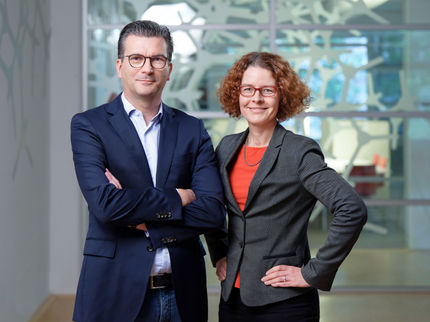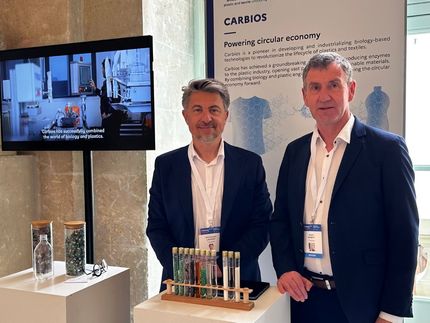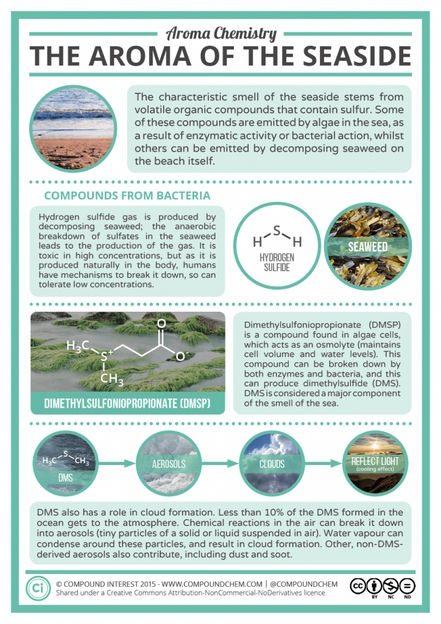Turning fallen leaves into sustainably made paper
Ukrainian scientist selected as a finalist for the Young Inventors Prize 2024
According to theWorld Wildlife Fund (WWF), the pulp and paper industry is one of the largest industrial sectors in the world and has an enormous influence on global forests. This sector accounts for 13–15% of total wood consumption and uses between 33–40% of all industrial wood traded globally. In search of more sustainable solutions for paper production, 23-year-old Ukrainian inventor Valentyn Frechka developed a method for recycling leaf litter into paper. Frechka is a finalist for the Young Inventors Prize of the European Inventor Award 2024, in recognition of his promising work towards a circular economy and addressing one of the United Nations’ Sustainable Development Goals (SDGs). He was selected from over 550 candidates for this year’s edition.
Using new technology to recycle fallen leaves into paper
The global loss of trees is known to significantly exacerbate climate change, increasing air pollution levels, causing the loss of biodiversity, and disrupting the water cycle. Global warming also leads to issues such as soil erosion and reduced freshwater availability. It also increases costs for managing environmental problems such as flooding.
In 2021, Valentyn Frechka founded Releaf Paper to commercialise his process. The company sources its leaves from city councils and uses this would-be-waste to produce biodegradable and recyclable paper products. It presents a convenient and cost-effective means of managing organic waste in urban areas, preserving trees, avoiding greenhouse gas emissions generated during the decomposition of the leaves and offering eco-friendly packaging alternatives to reduce waste. Notably, Releaf Paper can produce one tonne of cellulose from 2.3 tonnes of fallen leaves, which is the same amount of cellulose that would otherwise require cutting down 17 trees.
Releaf Paper uses advanced technology to process these fallen leaves into sustainable paper without sulphates, sulphites, or chlorine. Leaves undergo thorough cleaning and chemical-mechanical treatment involving grinding and softening with high pressure and steam. This process efficiently isolates fibres, yielding a pulp akin to wood pulp, which is then combined with bio-fillers to create paper rolls for various products like paper bags, cardboard, and corrugated boxes.
The company, with offices in Paris and Kyiv, also converts some waste into fertiliser and returns it to the cities. In the future, Frechka’s company aspires to work with fruit bio-waste such as tropical leaves, like pineapple, banana, and yucca leaves, as well as with agricultural bio-waste.
Inspired by a desire to protect nature
Born and raised in the rural village of Sokyrnytsia, where he was raised by his grandparents, Frechka demonstrated a restless curiosity about nature and life. At the age of 16, while hiking in the Carpathians, the idea emerged to tackling deforestation by repurposing dead leaves, making them a valuable resource in paper production while also reducing carbon emissions that occur during decomposition. He became a member of the Junior Academy of Sciences of Ukraine and that is where his journey for his own invention began.
“Releaf is a great example of what happens when experience, inspiration, knowledge and the right moment in the right place meet,” Frechka said. “Using leaves for paper production was an option which did not exist before, and it was our key to do something great, knowing that this technology can help future generations, while keeping the Ukrainian technology ecosystem alive”, he added.
Releaf Paper received support from the WWF and Canopy Planet in 2021. After Russia’s invasion of Ukraine in 2022, Frechka relocated to France and together with his partner found new strategy to expand the company’s opportunities. Currently, the production of paper from leaves is outsourced from Ukraine, and Releaf sells its product in many European countries, having multiple renowned clients among international brands and consumer goods.
By using new technology to solve the problem of plant waste in cities and preventing deforestation, Releaf Paper contributes to both the United Nations’ Sustainable Development Goal (SDG) 9, industry, innovation and infrastructure, and 12, responsible consumption and production.
The Ukrainian behind the innovation has been named one of three finalists for the Young Inventors Prize for this year’s European Inventor Award, recognising outstanding inventors aged under 30. The other finalists are a team of Tunisian inventors, Khaoula Ben Ahmed, Ghofrane Ayari, Souleima Ben Temime, and Sirine Ayari, who have developed a smart wheelchair control solution so individuals with severe disabilities can navigate independently, and Dutch Rochelle Niemeijer, whose portable test kit for the rapid identification of bacterial infections could be crucial in the fight against antibiotic resistance. The winners of the 2024 edition of the European Inventor Award and Young Inventors Prize will be announced during a ceremony livestreamed from Malta on 9 July 2024.
Other news from the department science
Most read news
More news from our other portals
Something is happening in the chemical industry ...
This is what true pioneering spirit looks like: Plenty of innovative start-ups are bringing fresh ideas, lifeblood and entrepreneurial spirit to change tomorrow's world for the better. Immerse yourself in the world of these young companies and take the opportunity to get in touch with the founders.






























































